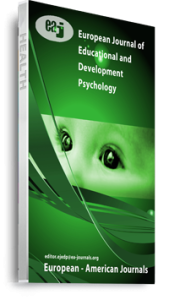The purpose of this research was to develop and validate the moderating effect of marital status on the relationship between student-teacher interaction and academic performance of students at Congolese university using two main studies. The first study was designed to develop the instruments for measuring student-teacher interaction’ and their academic performance at the university and to explore the moderating effect of marital status on the relationship between student-teacher interaction and the academic performance of students. For this study, a mixed research method was used. Samples were drawn from one higher education institutions (the University of Kinshasa), using simple random sampling and stratified random sampling techniques based on students’ status and sex as strata. For this study, both qualitative and quantitative data were collected. Data for qualitative analysis were gathered from married and unmarried students using interviews and focus group discussion, whereas data for quantitative analysis were gathered from married and unmarried students using questionnaire. The analyses were made using mainly multiple regressions, the statistical testing of the generated hypothesis via t-test statistics and Pearson product moment correlation, multivariate analysis of variance (MANOVA), and simple slope analyses. Furthermore, the demographic variable of participants (sex of students, student status, study level, socio-economic status of the family and major) was another target of the study. 362 students (include married’ and unmarried’ students) from the university of Kinshasa, took part in the study. The study was guided by the Bandura’s social cognitive theory, that determines human behavior and describe the learning theory that analyzes and explains how feelings, thoughts, actions of others, and social experiences actively shape learning processes. The final results revealed that there is a significant correlation between student-teacher interaction and academic performance. In addition, marital status moderated the relationship between student-teacher interaction and academic performance when students are unmarried.The second study was designed to examining the difference of academic performance between married and unmarried students. Qualitative data were collected from 362 students (include married’ and unmarried’ students) using interview questionnaire. Data were analysed using constant comparative approach (the reported stories that emanated from the conversations with the research participants); the deduced meanings from the interview protocol. The study results indicated that the unmarried students’ academic performance was high than their married students’ counterpart and in significant way; and the marital status was negatively associated with academic performance of students at the university in DRC. Finally, based on the findings, some practical and theoretical implications and future research directions were forwarded.
Keywords: : Academic Performance, Democratic Republic of Congo, Marital Status, Students, student-teacher interaction

